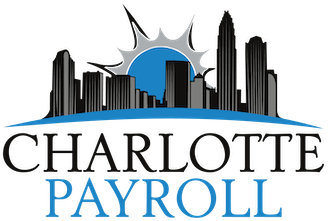Women make up 47% of today’s workforce here in the United States of America (US Department of Labor), and make up 100% of beings capable of giving birth. These two concepts made the workplace quite problematic for women attempting to juggle both a career as well as family. Fortunately, several laws have been passed over the years to protect women in the workplace including the Pregnancy Discrimination Act (PDA), the Family and Medical Leave Act (FMLA), and the Americans with Disabilities Act (ADA). For too long, woman had to choose between the well-being of their unborn child or penalties at work, including termination.
The Pregnancy Discrimination Act (PDA) of 1978 was set forth to bar businesses from making employment decisions with regards to pregnancy. The act defines discrimination against on “the basis of pregnancy, childbirth, or related medical conditions”, for employers with 15 or more employees. This was an amendment to the Civil Rights Act of 1964 “prohibiting sex discrimination on the basis of pregnancy”. The PDA does not require any special treatment of pregnant employees, but protects prejudice against women who are expecting. Furthermore, your employer must offer the same privileges to a pregnant employee as they do to other employees with temporary disabilities. This is somewhat vague, but allows for a basis for interpretation of the law.
While pregnant, issues can arise from nausea to sleeplessness, and everything in between, all of which are considered symptoms of being with child. Now, the Americans with Disabilities Act (ADA) does not consider pregnancy itself to be a reason to fall under the guise of the ADA, but its associated symptoms do. To stay compliant, employers must reasonably accommodate said employee without creating an undue burden to the company or place of business. This could be anything, from the obvious of exclusion of lifting heavy items to working less hours, or even allowing an employee work from home. It also includes the notion that a pregnant woman is going to have regular doctor appointments, thus causing her to miss work, and these appointments will most certainly be in excess as compared to that of a non-pregnant woman. But none the less, covered as a reasonable accommodation.
Since 1993, expecting mothers have been granted 12 weeks by the Family and Medical Leave Act (FMLA) to spend with their new born without fear of losing their jobs. The act does guarantee that an employer cannot terminate an employee for taking this time off, but does not guarantee the employee pay during this time period. Whether to pay an employee or not is completely up to the employer, again the FMLA does not entitle a new mother to paid maternity leave. That’s why it is very important when starting with a company to understand from your employer or their HR department, whether the company and you, qualify for FMLA benefits. Speaking form experience, when my first child was born, my wife’s company and her position qualified her for FMLA leave. And while she was not being paid, it was still our responsibility to cover the insurance offered through the company. So, again, be sure to check with you company to understand what, if any, benefits you will receive.
Let Charlotte Payroll keep you compliant with our full in-the-cloud experience that maximizes efficiency with our payroll, HR, and time and attendance. Our SaasHR platform can be tailored for businesses of any size to run on any device. Payroll can be processed in minutes, so you can focus on running your business. Schedule an appointment with one of our sales consultants to tailor a solution that fits your needs. Contact us today at (704) 887-5511.






